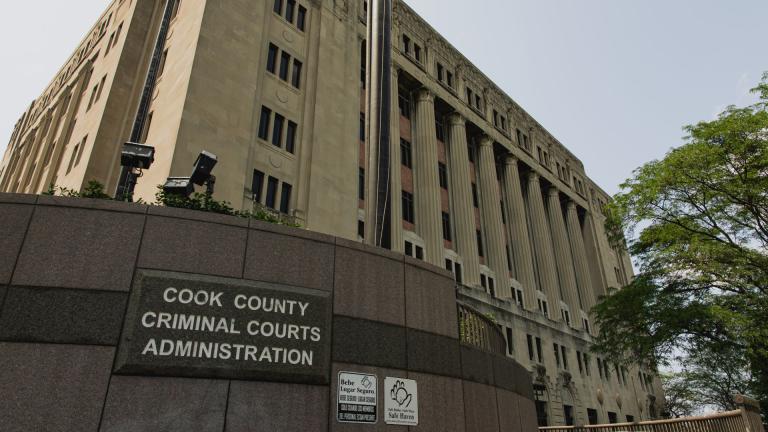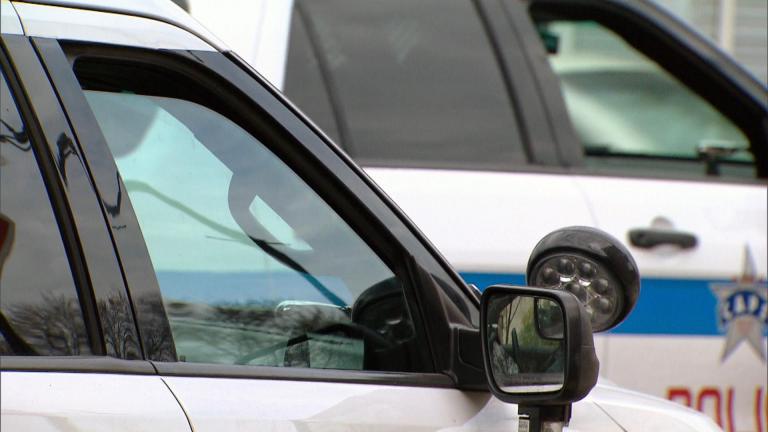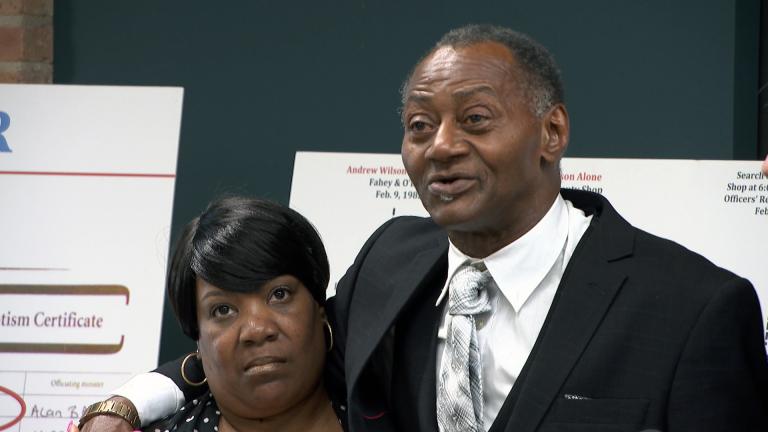Jan. 1 was to have been a big day in Illinois, as the state was set to become the first in the nation to completely move to a cashless bail system for those accused of crimes.
Instead, money bail remains in place.
On New Year’s Eve, less than 12 hours before cashless bail was to take effect, Illinois Supreme Court justices put it on hold indefinitely.
They had been asked to take action by a couple of suburban prosecutors, including Kane County State’s Attorney Jamie Mosser.
Mosser and DuPage County’s Bob Berlin had filed a motion asking the state’s high court clarify what they should do on Jan. 1, given that days earlier Kankakee County Judge Tom Cunnington had ruled the law, known as the Pretrial Fairness Act, unconstitutional.
That would allow some 70 of Illinois’ 102 counties (mainly those that had filed a lawsuit to stop the law from taking effect, as well as several that later were granted temporary restraining orders) were able to keep the current bail system, but another 32, including Cook and Lake, were planning to go forward with no-money bail as outlined in the new law.
“This would create chaos throughout the state of Illinois, to have defendants treated differently in each county, and frankly in each city,” Mosser said. “(The city of) Aurora has myself, DuPage County, Will County and Kendall. Will and Kendall were in the litigation; DuPage and Kane were not because we were negotiating. So you could be arrested in the same city and be treated differently and that’s not fair.”
Supreme Court justices agreed with that sentiment, writing on Dec. 31 that “in order to maintain consistent pretrial procedures throughout Illinois” they would stay, or pause, the Pretrial Fairness Act until they finished hearing an appeal of the Kankakee decision, and “until further order of this Court.”
The delay is frustrating for Chicago Appleseed Center for Fair Courts’ Sarah Staudt’s organization is part of the Coalition to End Money Bond.
“We had hoped that this law would go into effect Jan. 1. And the reason it’s frustrating is because the underlying lawsuit is really quite frivolous and and was brought at the last minute, at the 11th hour, with the purpose of delaying the implementation of the Act,” Staudt said.
The Pretrial Fairness Act’s bail transformation, as well as broader changes to the criminal justice system contained in the overarching SAFE-T Act package, passed with only Democratic votes and were a point of contention during the midterm elections.
Some critics relied on misinformation campaigns to attack Gov. J.B. Pritzker for it. GOP nominee Darren Bailey compared the SAFE-T Act to a “purge” law that would free all criminals.
Staudt said she is “confident” the Supreme Court will reverse the lower court’s ruling, paving the way for the Pretrial Fairness Act to take effect.
That would mean no longer would those accused of non-civil crimes have an option to pay money to get out of jail.
The law also lists classes of crimes in which a defendant is eligible to be kept in jail, if certain conditions are met. Meanwhile, the law makes it so that for the majority of crimes, someone must be released.
In legal speak, Mosser said it creates “non-detainable offenses.”
“Most Class 4 felonies are non-detainable. All drug possession cases are non-detainable. DUIs, until they become non-probationable or cause great bodily harm or have some other factor, are non-detainable,” she said.
Take those driving under the influence cases. Mosser says an officer could arrest someone, take them to the police station, and then to court. A judge could give the defendant conditions they’re expected to keep as they wait trial, like, don’t drink or don’t go to a bar.
“And then they’re released. But it doesn’t matter how much of a danger I think they are. I can’t file a petition because they’re not under one of those ten categories of offenses that can be detained,” Mosser said.
Mosser was not one of the 64 state’s attorneys who sued to stop the Pretrial Justice Act from going into effect.
She said she could, because she was among several state’s attorneys who were elbow-deep in negotiations with legislators earlier this fall and winter, as members of the General Assembly worked to address concerns of prosecutors and law enforcement.
During its veto session, the legislature passed a follow-up bill that makes modifications to the original Pretrial Justice Act. Pritzker signed the trailer into law in early December.
Mosser said with those changes, she’s generally on board with the law now, but she still has concerns, like that under the Pretrial Fairness Act there will be non-detainable offenses.
“There is some language that I would like to see cleared up, especially in regard to warrants. I do think we should never have a detention net, which means that it only has to be ‘this’ crime for (a defendant) to be detained, because there are plenty of crimes that if you understand the facts of the case, they are a danger or they are a flight risk,” Mosser said.
Legislators returned to Springfield on Tuesday, where they’re set until a new General Assembly is sworn in next Wednesday.
Mosser said she’s hopeful further changes to the Pretrial Fairness Act will be made during the lame duck session.
Meanwhile, Staudt is eager for Illinois’ Supreme Court justices to act.
“We’re confident the Supreme Court is going to reverse the lower court’s ruling and find the act constitutional in the long run,” she said.
Why the confidence?
“Fundamentally, because the legal arguments at play in the lower court are unserious,” Staudt said.
For example, she says the suing state’s attorneys misconstrue the definition of the word “bail” and argue that the Pretrial Fairness Act completely eliminates bail, when in fact, she said, the constitution does not explicitly define bail as monetary and the act keeps in place a bail system that allows defendants to be released.
Mosser, though, said while she couldn’t be part of the lawsuit, her fellow state’s attorneys made credible arguments, and she said the Kankakee County judge’s ruling, which found separation of powers issues with the legislature dictating a judge’s ability to release defendants, is sound.
“I agree that my colleagues had every legal justification to file the legal action that they did. I do have concerns about how this (the Pretrial Fairness Act) can go into effect with the way our constitution is,” Mosser said.
Mosser said she supports ending cash bail – a system that allows those with the means to “buy your way out of jail” – but she said she wants it done correctly.
At this point, she said, those questions are up to members of the Illinois Supreme Court.
Whatever justices decide, she said she will abide by it, and that Kane County is ready whatever the outcome.
Staudt said Illinois was ready Jan. 1 for cashless bail, and will be so whenever a decision comes.
“What we need to know is that we’re really pretty close to the finish line. The law has gone through multiple legislative changes. It’s survived one of the biggest misinformation campaigns that we could imagine it having during the last election, and now we’re in the final legal challenge,” Staudt said.
The Illinois Supreme Court has not made public a timeline for when it will act, though justices have said they will act expeditiously.
The court will rule with a 5-2 majority of Democrats.
Follow Amanda Vinicky on Twitter: @AmandaVinicky







